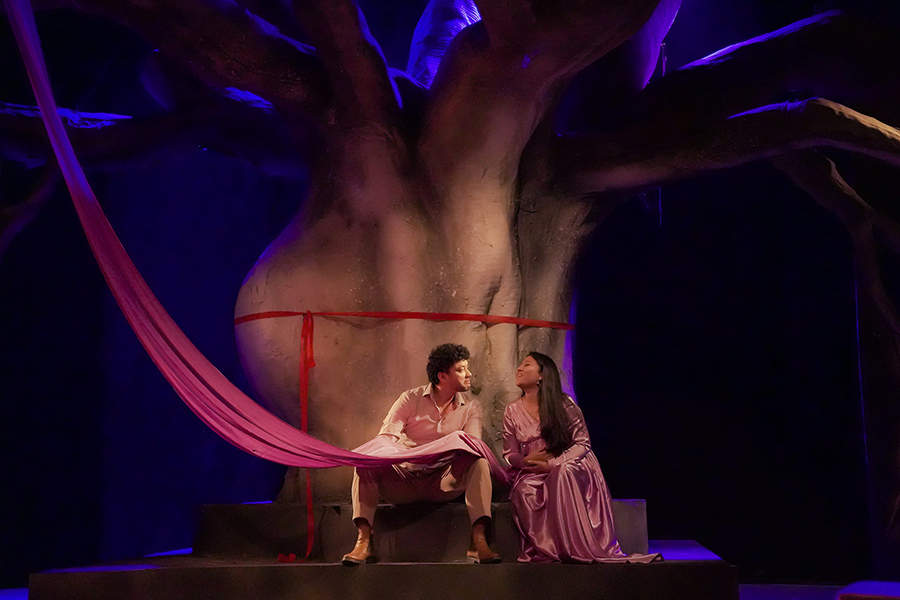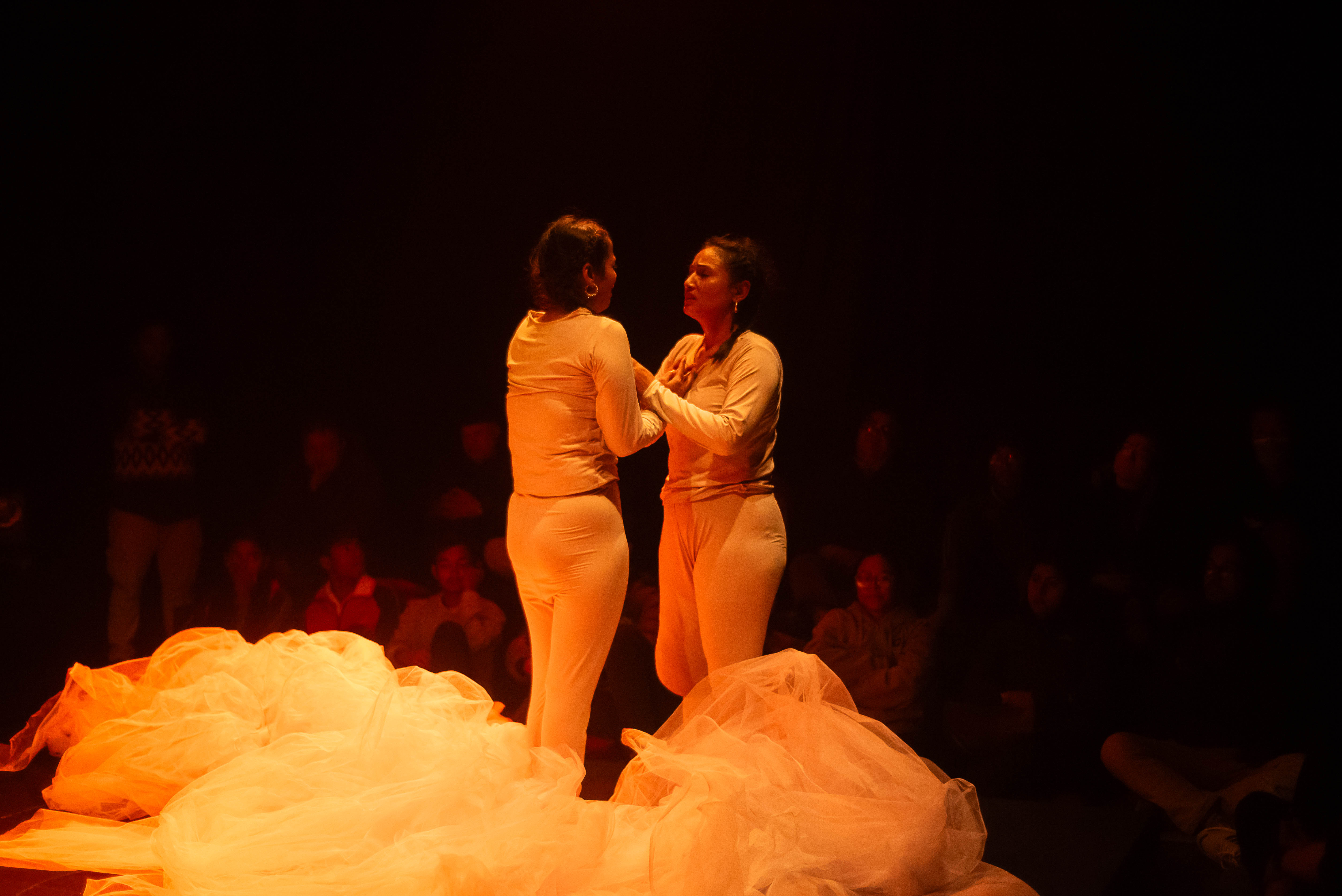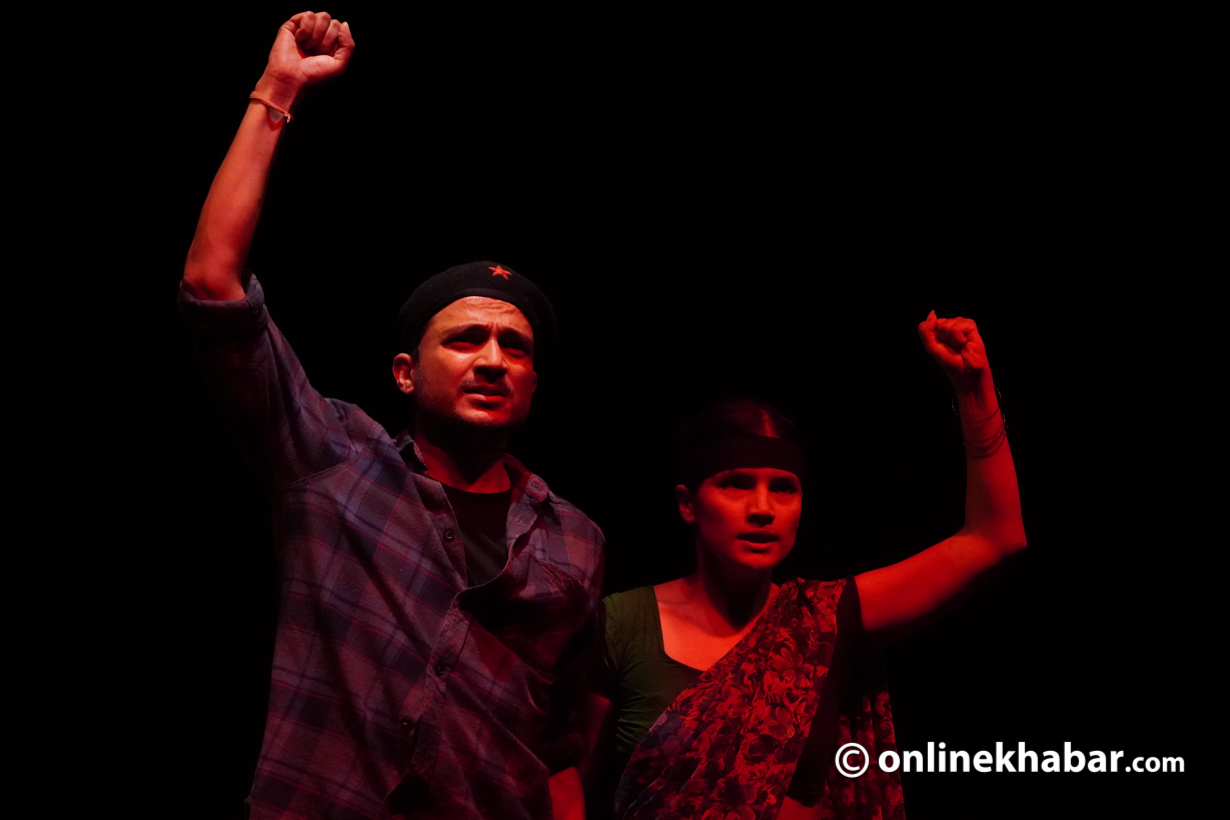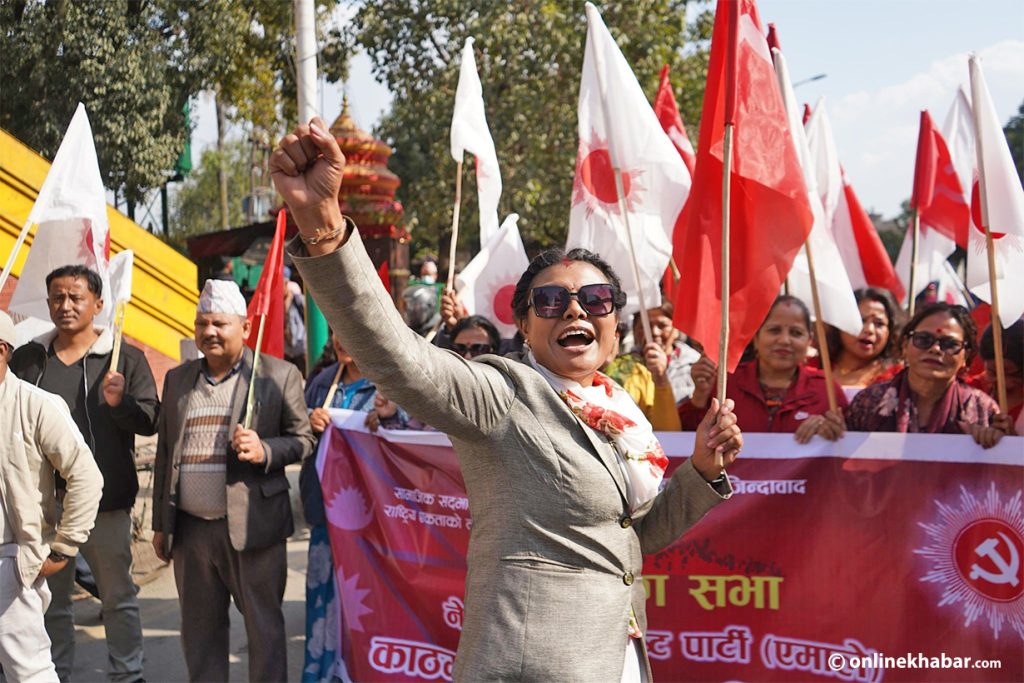
Deurali Daandi, alternately titled The Last Chapter of Ghatu also, currently being staged at Studio Theatre, Pingalasthan, Kathmandu, is set in an enigmatic village that does not have any men.
As the play produced by One World Theatre begins, you can see five women–Tara (Pashupati Rai), Sunita (Deeya Maskey), Siru (Menuka Pradhan), Maili (Ranjana Bhattarai) and Phulsara (Binita Thapa Magar)–in the Deurali village, expressing their concerns about a mysterious epidemic that has hit the village.
Earlier, the illness used to infect only men. To protect themselves from the epidemic, all the men from Deurali Daandi have moved to foreign soil. But now, even women are suffering from it. So, how can women save themselves?
They think they have only two options: leaving the village or calling the Dharti Devi, who they believe is the only capable creature in front of the crisis.
So, what will save the women? Watch Deurali Daandi: The Last Chapter of Ghatu today to find the answer to this and many more questions about gender roles that you might have in your mind.
A gender perspective

By extension, Deurali Daandi, written by Sahalesh and directed by Rose Schwietz, vividly shows the problem women have to go through due to the absence of men.
Some problems they face are growing up a child in the absence of a father and solely managing financial crises. The condition of these women is relatable to thousands of Nepali people whose partners have left for foreign soil with the hope of better employment opportunities and they are forced to look after all household chores in the homeland alone.
Since Nepal significantly witnesses labour migration, the context of the play is very relevant to Nepali society.
Similarly, there are also a few other things that make the play relevant in the Nepali context. The character gossiping about the family and neighbourhood is one among them. Those scenes often add laughter to the audience. Sunita (Deeya Maskey)’s way of speaking, during those gossips, entertains the audience. She is very natural with her tone and accent.
The play also discusses the water scarcity in Deurali Daandi and its impact on the lifestyle of the characters. A dried tree on the stage symbolically depicts the effect of water scarcity in Deurali. The conversation about the scarcity of water in the play is meaningful because it tells the story of water scarcity, which is now not limited to the cities but also the rural areas of Nepal. And, remember, women are the ones who bear the brunt first and most.
Technical pluses and minuses

Deurali Daandi: The Last Chapter of Ghatu stands out from other Nepali plays in a few ways. Firstly, it has an availability of English subtitles—with an English translation projected on stage, which means even one who does not understand the vernacular can watch and understand the play. Secondly, the play features live sound effects of the moments such as rainfall, water drop, pouring cement and others. Musician duo Chandra Kumar Gandharva and Subal Mani Sapkota have done a great job by producing those sound effects at perfect timing.
But, there are some aspects that the makers should think about or correct. Firstly, the play takes a long time to establish the story. For approximately 20 minutes, the play remains stagnant. It goes nowhere, because of which the audience at the beginning can be zoned out.
Secondly, the significance of the mysterious ancient Tharu queen, played by Sarswoti Chaudhary, remains questionable. It is difficult to figure out for what reasons she is getting a lot of respect in the play from all five protagonists.
Deurali Daandi also has an unusual ending; it features a commentary of a recent World Cup match between Argentina and Saudi Arabia amid a general conversation. Probably one cannot get the scene but maybe the makers also want to connect the play with the labour exploitation in Qatar while constructing infrastructure for the World Cup. Reportedly, more than 6,500 migrant workers from India, Pakistan, Nepal, Bangladesh and Sri Lanka have died in Qatar since it won the right to host the World Cup 10 years ago.
Despite some room for improvement, Deurali Daandi: The Last Chapter of Ghatu is worth watching. All the actors have done a beautiful job in dialogue delivery, dance, managing the setting by themselves and acting.
You can go with your family and friends to watch the play. It will run till January 29 every day except on Mondays, at Studio Theatre, Pingalasthan, Kathmandu. There will be additional shows on Saturday at 1:00 pm.


























